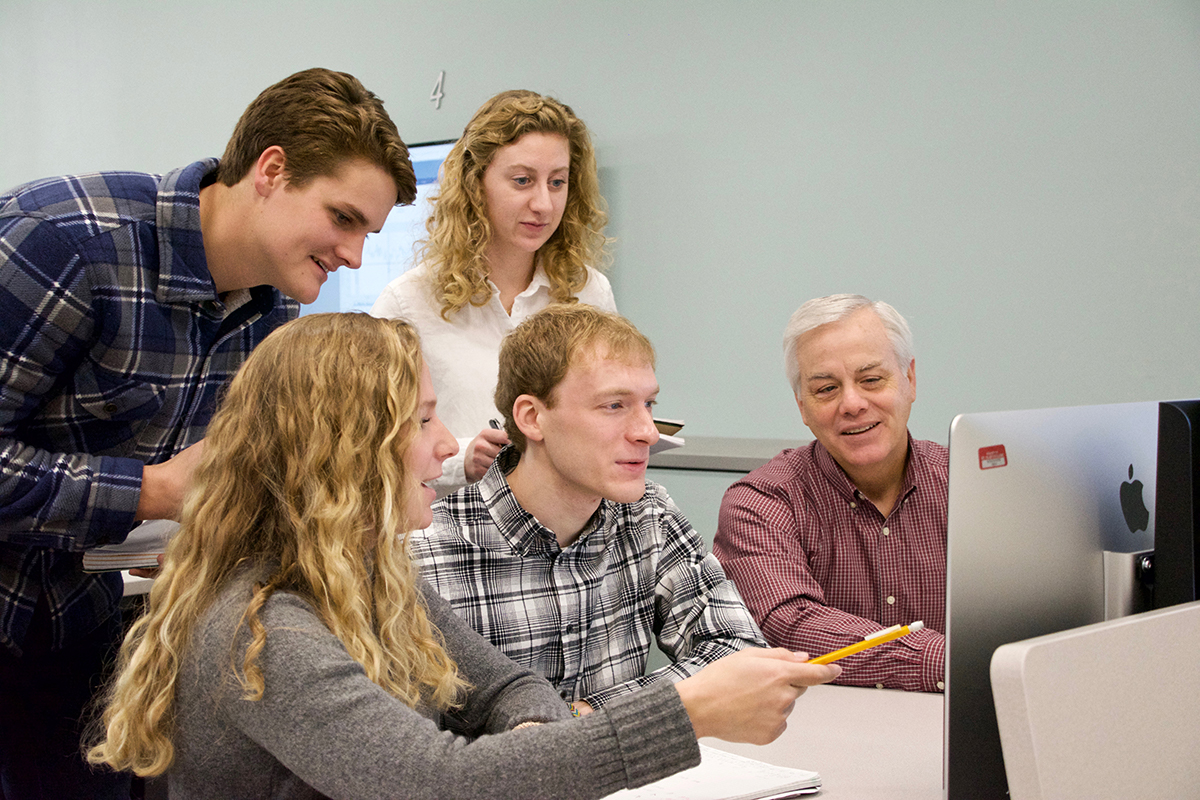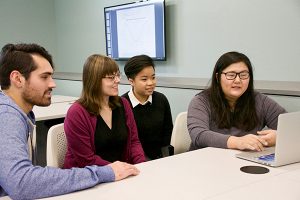Big Data Big Deal for Oles in Directed Research

Faculty-mentored research engages Oles in discovering their potential as researchers, investigators, and scholars. Through For the Hill and Beyond, Oles are building funds to support this high-impact practice.
During the academic year, directed research courses enable small student groups to collaborate with faculty and earn credit. Many engage with “big data” — massive digital data sets increasingly available for researchers.
“What you can do in research has changed rapidly,” says Chair and Associate Professor of Economics Paul Wojick. Supported by the Frank Gery Endowed Fund, Wojick and his students explored how market liquidity informs the length of recessionary cycles, including the Great Recession.
“Using Federal Reserve data, we found that funds flowed primarily from the stock then bond markets into the treasury market, but almost directly into its short end,” says Wojick. “This began almost six months before the crisis, suggesting that institutional investors sought safety long before it actually hit.”
Economics and mathematics major Matthew Damhof ’18 contributed to the team’s statistical data analysis. “I learned how to use data to see concepts that are otherwise difficult to observe. With an entire class focused on one project we get more guidance how to do so.”
I haven’t done a project of this intensity or sophistication, and not with health data. We do a lot of theoretical work in class, and applied analysis like this has helped me decide I want to work on clinical trials. I wouldn’t have thought so before.
— Charlotte Roiger ’18
Statistics and mathematical science students also engage with big data through St. Olaf’s Center for Interdisciplinary Research. Each cohort collaborates with experts in problem-based investigations and consults the St. Olaf community on statistics-related issues.

“We are exploring how emergency room doctors across Florida influence practice as they change hospitals,” says Assistant Professor of Economics Ashley Hodgson. “Essentially we are measuring how ideas spread, and how doctors’ behaviors affect both cost and quality of care.”
“I haven’t done a project of this intensity or sophistication, and not with health data,” says researcher Charlotte Roiger ’18. “We do a lot of theoretical work in class, and applied analysis like this has helped me decide I want to work on clinical trials. I wouldn’t have thought so before.”
“Being able to do anything with data really makes a student stand out as an applicant,” says Wojick. “It’s becoming ever more important.”
You must be logged in to post a comment.